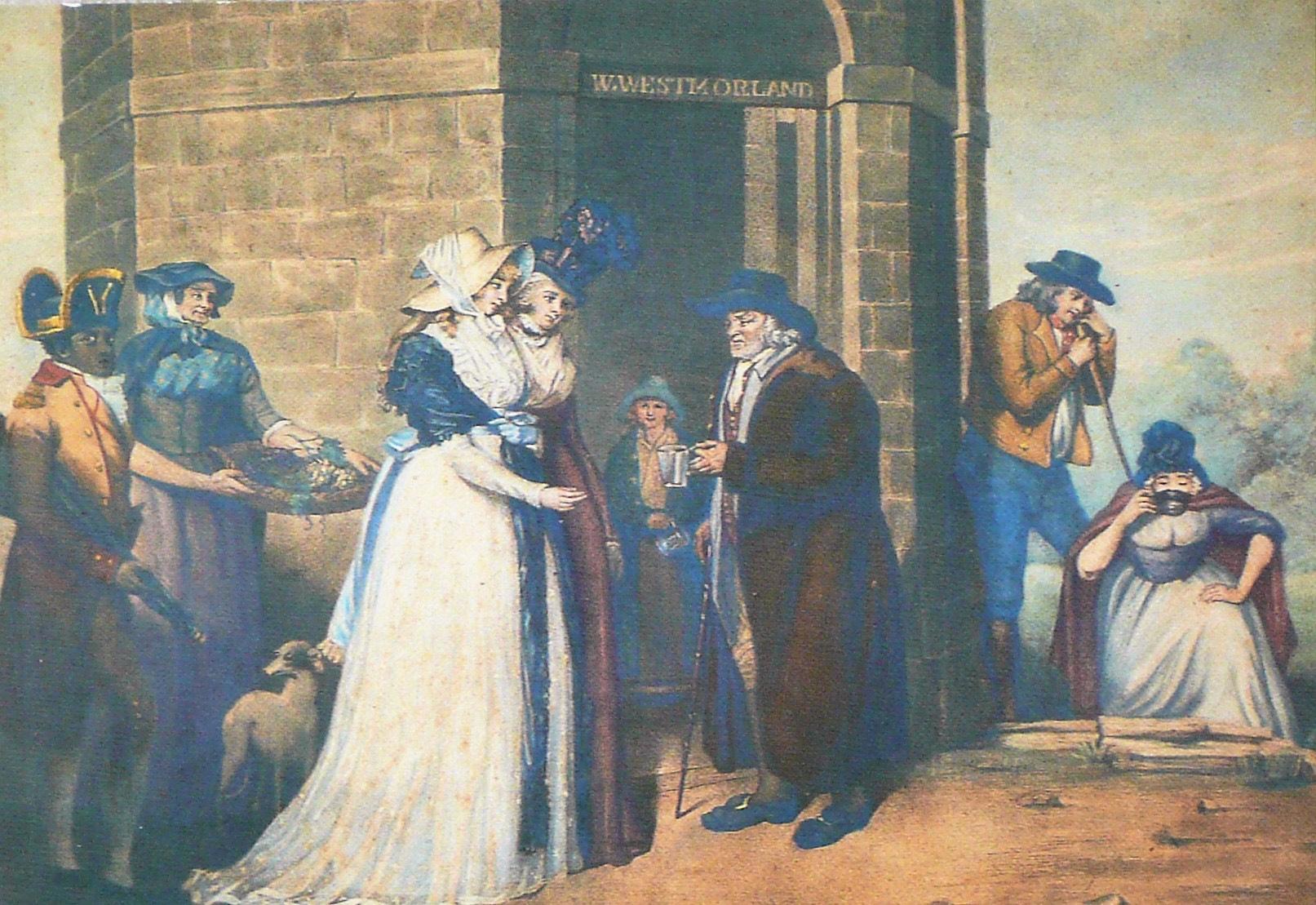Subscribe to trusted local news
If you are accessing this story via Facebook but you are a subscriber then you will be unable to access the story. Facebook wants you to stay and read in the app and your login details are not shared with Facebook. If you experience problems with accessing the news but have subscribed, please contact subscriptions@thestrayferret.co.uk. In a time of both misinformation and too much information, quality journalism is more crucial than ever. By subscribing, you can help us get the story right.
- Subscription costs less than £1 a week with an annual plan.
Already a subscriber? Log in here.
13
Jun 2020
Harrogate History: does Harrogate have connections to slavery?

This History is written for The Stray Ferret by Harrogate historian, Malcolm Neesam:
The recent tragic circumstances which have initiated a somewhat frenzied public examination into the background of individuals who past generations with vastly different values to our own times decided to honour, have prompted me to consider how this might apply to Harrogate.
This, initially, may seem of dubious value, given that Harrogate’s great days of urbanisation and statue erection belonged to the west’s post-slavery decades of the mid and later nineteenth century. The great problem is one of degree. If Harrogate has never put up any statues to acknowledged slave owners, this is not to deny that in common with every other UK community, there will inevitably have been those of its citizens who benefited from the slave trade by indirect association. The innkeeper, who invested in a company known to profit from the Virginia tobacco trade; the doctor, who bought shares in a company trading in Jamaican sugar; the gentleman farmer who sat on the board of a cotton importation business without looking too closely into the conditions of those who produced that cotton. Were we today to closely examine the basis on which some of our family fortunes were established, many would surely be discomforted.
But perhaps there is one figure with a strong connection with Harrogate who might be scrutinised, and that is the man who gives his name to Wedderburn House, Wedderburn Road, and the Wedderburn estate in general. Alexander Wedderburn, M.P. (1733-1805) was an ambitious politician, who in 1771 became Solicitor General, later advancing to the positions of Attorney General, Chief Justice of Common Pleas, and, in 1793, Lord Chancellor, a post he held until 1801.
Wedderburn earned a place in history when he grilled Benjamin Franklin on his role during the unrest in the American colonies. His meteoric career earned him many enemies, and his friendship with David Garrick and Richard Brindsley Sheridan was evidence for his great interest and support for the theatre. Wedderburn’s titles included those of Baron Loughborough and first Earl of Rosslyn.
Read More:
- Newby Hall uncovers links to slave trade
- Harrogate History: VE Day - a day of rejoicing after the harsh years of war
In 1775, Wedderburn acquired lands south of what became the Stray, and after living at Woodlands House, he moved into Wedderburn House, it being widely believed to have been remodelled for him by the great Carr of York. Wedderburn’s decision to acquire a residence in Harrogate was partly because he travelled frequently between London and Edinburgh, and found the town ideally situated more or less half way between the two. It was also known that he was attracted to one of the actresses who appeared with Samuel Butler’s troop at Harrogate’s Church Square Theatre – now Mansfield House. In 1790, the sixteen year old Tryphosa Jane Wallis was described as “exquisitely fair, with expressive blue eyes, well controlled movements, a fine figure, and a voice of more sweetness than strength’ . Her talent was recognised by the Lord Chancellor of England, Alexander Wedderburn, also known as Lord Rosslyn, and his wife, who obtained relief from a medical complaint from the mineral waters of the neighbouring St. John’s Well. Years later, when Miss Wallis was a nationally celebrated actress, she interrupted her work at Covent Garden to visit Harrogate, staying at Wedderburn House, although it is not known what Lady Loughborough thought about the visit!.
Wedderburn’s wife, Charlotte, received such benefit from the waters of the St. John’s Well on Wetherby Road, that her husband, who then had the title of Baron Loughborough, paid for the rebuilding of the pump room, which is shown in the engraving of 1796, (main picture) and which records Charlotte’s visit to the well. This was tenanted by William Westmorland, whose name may be seen above the door. Lady Loughborough’s retinue included a black page boy, who is depicted at far left.
Although this writer knows of no direct involvement by Alexander Wedderburn with the slave trade, it would be unrealistic to think that so powerful a man as the Lord Chancellor with his broad portfolio of business interests, did not occasionally benefit from the proceeds of this vile business.
Further research into this may prove revealing, if anyone has the wish to do it.
Malcolm Neesam: Malcolm Neesam was born in Harrogate and graduated from the University of Leeds as a professional archivist and librarian. He subsequently worked in Hereford, Leeds, London and York where, for twenty-five years, he was North Yorkshire’s County Music and Audiovisual Librarian. Malcolm is a much-published author. In 1996 Harrogate Borough Council awarded Malcolm the Freedom of the Borough for his services as the town’s historian.
Malcolm Neesam was born in Harrogate and graduated from the University of Leeds as a professional archivist and librarian. He subsequently worked in Hereford, Leeds, London and York where, for twenty-five years, he was North Yorkshire’s County Music and Audiovisual Librarian. Malcolm is a much-published author. In 1996 Harrogate Borough Council awarded Malcolm the Freedom of the Borough for his services as the town’s historian.
0